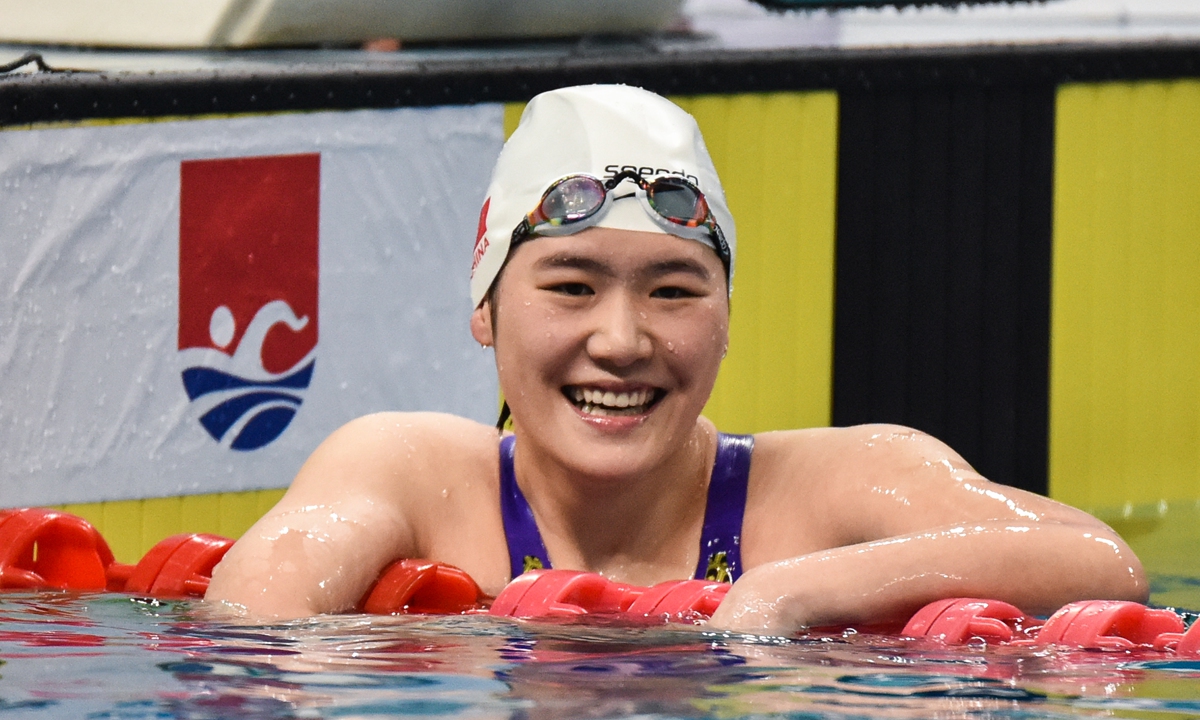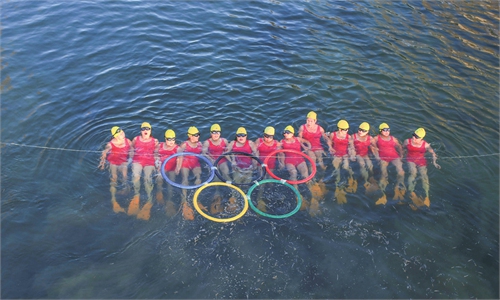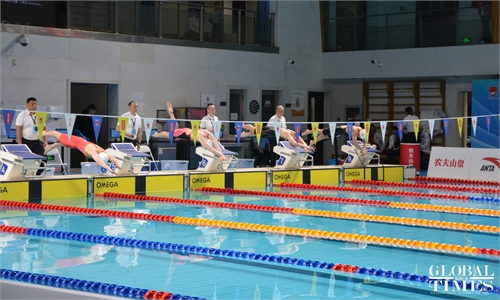ARTS / CULTURE & LEISURE
Veterans' return to competition at national trials sounds alarm for young swimmers

Ye Shiwen at the national trials Photo: VCG
The national swimming trials are in full swing in Qingdao, East China's Shandong Province, as athletes bid for berths for the national championships in May. However, at an event that was expected to see the rise of young swimmers, several veterans stole the spotlight.
Veterans from East China's Zhejiang Province, considered a powerhouse for China's swimming squad, has made headlines as the squad includes Olympic gold medalist Ye Shiwen, online sensation Fu Yuanhui and butterfly specialist Wu Peng.
The trio, all born in Hangzhou, the capital of Zhejiang and host city of the Asian Games from September 23 to October 8, have not been active in competitive swimming for years, especially Wu, who retired a decade ago but has decided to return.
Wu's career highlight does not lie in his medals from competitions, but twice defeating the most decorated swimmer in history - Michael Phelps - in 2011.
Though sporadically getting back into competition, Ye has been studying at the elite Tsinghua University since 2014. Her most recent achievement in the pool was two silver medals at the world championships in 2019.
Besides a 2016 Olympic bronze medal, Fu has not achieved further milestones, but she is the more well-known athlete thanks to her appearances on reality shows after a cheerful post-race interview made her nationally popular.
Another Zhejiang swimmer Wang Shun, an Olympic individual medley gold medalist, won the 100 meters backstroke competition at the trials.
But his win with 54.09 seconds is still far from the Asian record of 51.86 seconds set by Zhejiang's backstroke specialist Xu Jiayu, who did not show up in the trials after controversies outside of the pool.
Though no athlete would like to demonstrate their peak form at a trial event, in a sport in which 0.01 seconds could mean a different color medal, other backstroke specialists that fall behind Wang really have a long way to catch up.
The Asian Games are expected to once again be a white-hot battlefield in the swimming pool between Asian swimming powerhouses Japan and China, as the last Asian Games in 2018 saw Japan edge out China with two silver medals at the medal table in swimming.
But as time has passed, China no longer has a dominating swimmer like Sun Yang, who is serving a four-year ban, while Xu's future remains uncertain - the duo contributed seven gold medals at the 2018 Games. Young Chinese swimmers really need to improve if they want to help China maintain competitiveness in swimming.
There is some promising talent for sure. Sprinter Wang Haoyu, 17 years old, clocked the men's 100 meters final with 47.89 seconds at the trials, becoming the third Chinese swimmer to beat the 48-second mark.
Wednesday night also witnessed versatile veteran swimmer Wang Shun dominating the men's 200 meters freestyle in 1:47.15, even though he is not a freestyle specialist. It is Wang Haoyu who came 0.30 seconds behind to take second place.
The emergence of the young athlete has brought some hope that at least the talent pool is growing.


